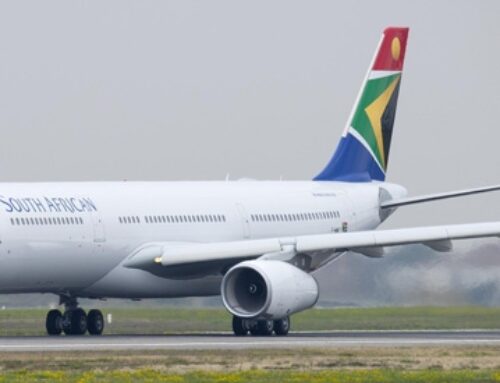
The travel industry, characterized by its dynamic nature and constant evolution, has always been at the forefront of embracing innovative technologies. In this context, Artificial Intelligence (AI) emerges not merely as a technological tool but as a transformative force that synergizes with human creativity. When imagination and experimentation are amplified by AI, the result is a profound leap in travel technology and a redefined passenger experience. This essay explores how AI, in tandem with human ingenuity, is driving innovation in travel technology, significantly enhancing every aspect of the passenger journey.
The integration of AI with human creativity is revolutionizing travel technology, offering personalized and efficient travel experiences. AI’s data processing capabilities, merged with human insights, allow for tailored travel planning and intuitive booking systems. This synergy enhances operational efficiency through predictive analytics, ensuring reliability and punctuality. In-flight experiences are personalized, making journeys more enjoyable. AI’s role in safety and security, along with sustainable travel solutions, significantly elevates the overall travel experience. This innovative blend of AI and human creativity is setting new standards in the travel industry, making travel smarter, safer, and more attuned to individual preferences.
Personalized Travel Planning:
AI’s ability to process vast amounts of data and learn from user preferences has enabled unprecedented levels of personalization in travel planning. When combined with human creativity, AI can curate highly personalized travel recommendations, itineraries, and experiences that resonate with individual preferences and needs. This personalized approach transforms the planning phase from a generic process into a uniquely tailored experience, enhancing customer satisfaction and engagement.
Enhanced Booking Systems:
Experimentation with AI algorithms has led to more intuitive and efficient booking systems. AI-driven chatbots and virtual assistants, designed with a touch of human empathy and understanding, offer real-time assistance, making the booking process more interactive and less cumbersome. The integration of AI in booking platforms ensures that customers find the best deals and options, significantly improving the efficiency and convenience of travel arrangements.
Predictive Analytics for Improved Operational Efficiency:
AI’s predictive capabilities, fueled by imaginative applications, are revolutionizing operational efficiency within the travel sector. From predicting flight delays to optimizing routes, AI helps in preemptive decision-making, reducing operational costs and enhancing on-time performance. This not only improves the reliability of travel but also elevates the overall passenger experience.
Customized In-Flight Experiences:
AI has enabled airlines to offer customized in-flight experiences. From entertainment choices to meal preferences, AI systems, backed by creative human input, can tailor in-flight services to meet individual passenger preferences. This personalization makes the journey more enjoyable and memorable for travelers.
AI in Safety and Security:
AI, coupled with human oversight, significantly enhances safety and security in travel. From advanced screening techniques at airports to AI-based surveillance systems, the combination of AI’s analytical prowess and human judgment ensures a safer travel environment. This not only enhances security but also streamlines processes, reducing wait times and improving the overall travel experience.
Sustainable Travel Solutions:
With a growing emphasis on sustainable travel, AI-driven solutions are assisting in minimizing the environmental impact of travel. AI, combined with creative human strategies, can optimize flight paths for fuel efficiency, manage waste more effectively on flights, and contribute to sustainable tourism practices. This innovative approach towards sustainability resonates with the eco-conscious traveler, enhancing brand image and customer loyalty.
The integration of AI into the realm of travel technology, guided by human imagination and experimentation, is not just an incremental improvement but a paradigm shift. This collaboration is creating smarter, more efficient, and more personalized travel experiences, setting new benchmarks in customer satisfaction and operational excellence. As we continue to explore and innovate, the potential for AI in revolutionizing travel technology and the passenger experience is boundless. In this rapidly evolving landscape, the synergy of AI and human creativity will continue to be the key driver of groundbreaking advancements in the travel industry.
Sources: AirGuide Business airguide.info, bing.com, sciencedaily.com, theatlantic.com, weforum.org
Brownlee, J. (2019, June 3). Generative Adversarial Networks for Beginners. Machine Learning Mastery. https://machinelearningmastery.com/
Kostakis, V., & Giotitsas, C. (2014). The (a)political economy of bitcoin. TripleC: Communication, Capitalism & Critique, 12(2), 431-440.
Crawford, K., & Paglen, T. (2019). Excavating AI: The politics of images in machine learning training sets. https://www.excavating.ai/
Zellers, R., Holtzman, A., Rashkin, H., Bisk, Y., Farhadi, A., Roesner, F., & Choi, Y. (2019). Defending against neural fake news. In Advances in Neural Information Processing Systems (pp. 9054-9065)
Enabling the ‘imagination’ of artificial intelligence — ScienceDaily https://www.sciencedaily.com/
The present and future of AI – Harvard John A. Paulson School of Engineering and Applied Sciences https://seas.harvard.edu/







